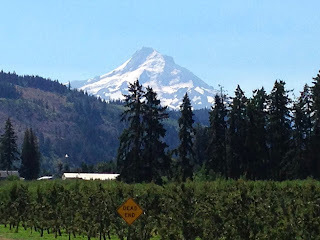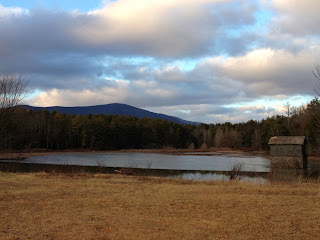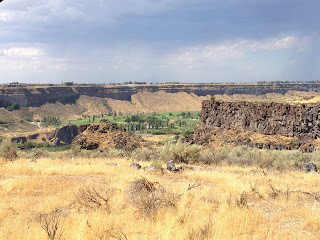justice
When The Court Will Not Give Justice
-- The Book of Susanna, v. 9. (New Revised Standard Version)
“Just as she was being led off to execution, God stirred up the holy spirit of a young lad named Daniel, and he shouted with a loud voice, ‘I want no part in shedding this woman’s blood!’ All the people turned to him and asked, ‘What is this you are saying?’ Taking his stand among hem he said, ‘Are you such fools, O Israelites, as to condemn a daughter of Israel without examination and without learning the facts? Return to court, for these men have given false evidence against her.’”
-- The Book of Susanna, vv. 45-49. (New Revised Standard Version)
Demosthenes' "Against Meidias"
The text is full of citations of Athenian law, and both its structure and content tell us a great deal about ancient jurisprudence.
Demosthenes also gives us some gems of ancient legal reasoning, reminding us that there is very little new under the sun. For instance: Meidias, a wealthy and brutish man, assaulted Demosthenes while Demosthenes was performing a sacred state function. Meidias then claimed that such assaults happen all the time, and therefore his was unimportant. Demosthenes replied that the decision of the court will affect not only this single case but that it will have the effect of deterring future assaults as well.
But on this reading I am especially enjoying Demosthenes as a handbook of erudite Attic insults. His repeated epithet against Euctemon, Ευκτημων ο κονιορτος, "dust-raising Euctemon" or "Dirty old Euctemon" is a minor example.
A far better one is this one, aimed at Meidias:
“If, men of Athens, public service consists in saying to you at all the meetings of the Assembly and on every possible occasion, ‘We are the men who perform the public services; we are those who advance your tax-money; we are the capitalists” – if that is all it means, then I confess that Meidias has shown himself the most distinguished citizen of Athens.” (Section 153; Taken from the Loeb edition. J.H. Vince, Trans. (Cambridge: Harvard UP, 1956) p.107)He hardly needs to say what follows: of course, public service consists in much more than that, and by offering these public rebukes against a man like this I am fulfilling one of my highest duties. Powerful people who use their power to abuse their fellow citizens deserve no less.
The Moral Issue Of Land
"[The prince] is to give his sons their inheritance out of his own property so that none of my people will be separated from his property." (Ezekiel 46.18)
 |
| Central Oregon |
And this, written by Alan Paton. His younger Jarvis (in Cry, the Beloved Country) also writes prophetically about South Africa. What he says could have been written about any number of places, though:
"It is true that we hoped to preserve the tribal system by a policy of segregation. That was permissible. But we never did it thoroughly or honestly. We set aside one-tenth of the land for four-fifths of the people. Thus we made it inevitable, and some say we did it knowingly, that labour would come to the towns. We are caught in the toils of our own selfishness....No one wishes to make its solution seem easy....But whether we be fearful or no, we shall never, because we are a Christian people, evade the moral issues."As a child I thought prophets were people who predicted the future, or who spoke things God wanted to say, like spokespeople. As I've grown older, my notion of prophets has expanded to mean those people who disrupt our quotidian secular and economic concerns in order to remind us that love and justice may and must constrain our actions. What could be more important than that?
 |
| Zena Reservoir and Overlook Mountain |
The question I am pondering this morning: What do love and justice require of us when it comes to land ownership?
This question is made more poignant as our state legislature is considering eliminating perpetual conservation land easements. One argument against them is that it seems unreasonable to put limitations on future people. We may rightly ask: can we consider those people who do not yet exist - and who therefore may never exist - as factors or agents in our moral reasoning?
 |
| Dakota prairie |
And yet every time we consume a non-renewable resource we are making an irrevocable decision about what the land will yield for perpetuity. Land easements may be one way to offset the effects of our other decisions, and they are at least reversible if the future proves them foolish.
Jarvis correctly diagnoses us: when we think about the future, frequently we are moved by fear. Isn't that why the prince Ezekiel spoke of was tempted not to give up his land?
I also find that when I think about the future, I am also motivated by love, and that love is perhaps my strongest, my most angelic impulse. I save, teach, build, conserve, and create for my children, and for others like them. I may not be able to give them a better world, but I do feel - I admit it is, at its base, a feeling - that I owe them at least as good a world as I received.
 |
| Twin Falls, Idaho |
Every Time You Open A Prison...
…you close a school." - Victor Hugo.
“Why is it considered morally offensive and economically unwise in this country to give a poor person a few dollars more than $13.22 per day, but ethically appropriate and fiscally sensible to incarcerate a poor person at an average cost of $55.18 per day?” - Jens Soering, An Expensive Way to Make Bad People Worse. (Click here for Wikipedia’s article on Jens Soering.)
Hugo is obviously being provocative; education does not guarantee moral goodness. And Soering is similarly making a comparison that leaves out the important fact that criminals freely choose to commit their crimes. Nevertheless, good education does create opportunity, whereas inequality in education seems like an invitation to the poor to continue to consider themselves to be perpetually unequal to the wealthy and so perpetually unable to advance economically without crime.
Selah.